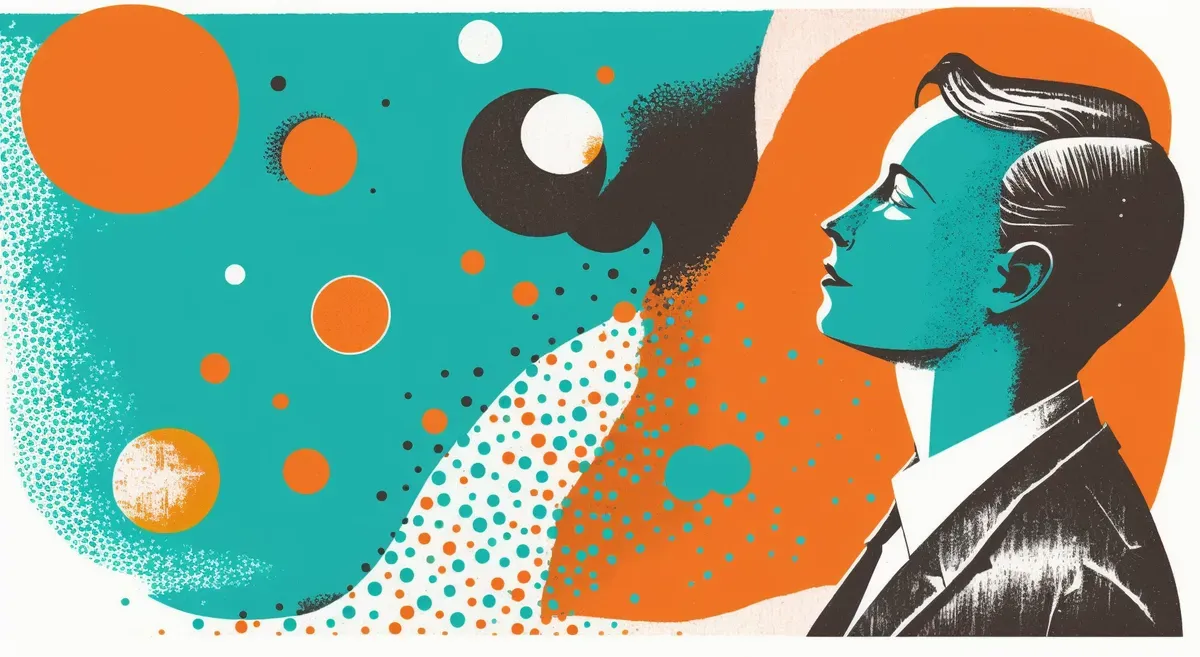An Ode To The Blessed Belief System

A belief is something one accepts as true or real; a firmly held opinion or conviction. A system is a set of things working together as parts of a mechanism or an interconnecting network. Therefore, a belief system is the network of all things that one accepts to be true in their reality.
WHO CHOSE OUR BELIEFS?
First, we adopted the beliefs of those who raised us; more often than not this was our parents, but perhaps we were raised by our grandparents or grew up in foster care. The specifics don’t matter as much as the simple fact that we were indoctrinated into a set of beliefs that did not necessarily belong to us.
Interlinked with our familial beliefs were the beliefs of the community. This might have been the tendencies of thinking of the town we grew up in or the religious faith we were born into. The beliefs of those who raised us are a subset of the community that they were a part of. While there may be differences, the likelihood is that they would have had similar and conforming beliefs to others in that community. Such is the nature of acceptance in larger groups of people.
If the community was an organized religion, it is interesting to note how we can be handed at birth, an entire belief system; one that features a fleshed out narrative of how things are, how people should behave and what is right and wrong. We did not choose to be part of this religion – instead, we just were until we decided to question it. If, of course, we ever ended up doing that at all. Community, unlike family, can be picked, and we must always remember that we are responsible for the company we keep.
Almost identically to a religious community, we may have been indoctrinated into a political community. Political ideology is not based on universal truth, it is based on conjecture and personal interpretation of morality. The political party we were born into supporting had – just like any religion – had a fleshed out narrative of how things are, how people should behave and what is right and wrong.
Next up, we find cultural beliefs, or the agreed views held by people living within the same culture. In parts of the world, burping after a meal is a sign of gratitude, while in other cultures this behaviour is abhorrent. Neither one is more correct, so we must take note of the “truths” we believe that don't extend past the borders of our country. If we never travel, we can develop the mindset that the rest of the world has more unusual traditions and beliefs than we do, but this mindset exists only as a comparison from our perspective.
The final layer of belief is that of humanity itself. These are the most widely held views that most people agree on – such as it is not great to murder people or that it is more dignified to have a home than be homeless. Even beliefs of this scale are not impervious to change, as certain beliefs are sometimes overturned after a while. For example, the Earth is no longer believed to be flat – which was “truth” before it became a falsehood.
The people who raised us played the roles of developers, writing, bit by bit, the lines of code that would create the operating system that would become our paradigms. Those developers worked for a company, that we might call a community – that had a vested interest in believing certain things and thinking certain ways together. Those communities were inextricably linked to the cultures they were born from – whether through acceptance or resistance of the cultural norm. In all their myriad of differences, all the cultures of the world mesh as puzzle pieces in the overarching structure of humanity itself. This level of belief is where we find the grandest and most grounded concepts of what we believe to be true as humans.
Until the age of 7, we were programmed, with no way to give input or obtain clarity and perspective on what software would be installed into us. We didn't have the mental capacity to shape who we were becoming. Our minds were blank canvases. The tops of our heads were empty bowls, into which were decanted all the beliefs that come with growing up in the environment we just so happened to find ourselves in. At that age, we didn't have the conscious awareness to determine what was truly real to and for us, but more importantly, what would ultimately help or hinder our ability to live a happy and healthy and helpful life. We became products of our environment until the day we wake up and decide to write a different from default story for ourselves.
If we wish to grow into the people we truly desire to become, we must make it our mission to examine and re-examine the beliefs that we have unconsciously inherited and taken to be our own. We must endeavour to make the examination of belief a lifelong habit, as regular maintenance is necessary to ensure we are not living in outdated structures of thinking and being that hold us back.
THE FEEDBACK OF EXPERIENCE
Beliefs are not just formed through our singular experiences or isolated epiphanies. They are cultivated and nurtured over time, through repeated experiences that leave imprints on our minds. When we encounter a particular situation or feeling repeatedly, it can lead to the formation of a specific belief. As we hold onto this belief over time, it tends to attract experiences that echo and reinforce it. This creates a feedback loop that continually strengthens the belief.
In the same vein, our beliefs also act as filters through which we perceive and interact with the world around us. They form the framework within which we interpret our experiences, defining what we see as real, important, possible, or impossible. Therefore, our beliefs fundamentally shape our entire experience of reality.
Understanding this can shed light on why some individuals may hold rigid or prejudiced views. It’s not merely a result of ignorance or ill-will, but often a reflection of a deeply ingrained belief system. Recognizing the power and influence of belief allows us to empathize with those who hold opposing or problematic belief systems. This doesn’t mean we should condone harmful beliefs, but it does mean we should strive to understand their origins.
As we comprehend the profound influence of our beliefs, we recognize our responsibility to nurture beliefs that empower us and enhance the quality of life for all. We should strive to replace limiting and divisive beliefs with those that foster understanding, compassion, and love. This shift requires conscious effort and a commitment to continual self-improvement.
This responsibility lies solely with us. We cannot point fingers at external circumstances or people for the absence of peace and love within us. If our beliefs breed hatred and division, making the world seem darker and smaller, we must acknowledge that it's our doing. The beliefs we hold and the way they color our perception of the world is a direct reflection of our inner state.
THE REALMS OF POSSIBILITY
Our belief systems are the navigational compasses of our lives. They guide our decisions, our actions, and fundamentally, our perception of the world. And within this wide array of beliefs, our sense of what is possible and impossible can have a profound impact on the trajectory of our lives.
Human history is replete with examples of how our beliefs about possibilities shape reality. When the Wright Brothers believed human flight was possible, despite the widespread belief to the contrary, they changed the world forever. When people believed that breaking the four-minute mile was impossible, it remained unbroken, until Roger Bannister challenged that belief and proved it wrong.
Our beliefs about what's possible not only define our goals and aspirations but also our limits. If we believe something is impossible, we often do not even attempt it, missing the chance of discovery or achievement. This mindset could leave us in a comfort zone where we avoid risk and possible failure, stunting our growth and potential. After all, why would one pursue a path they believe is destined to fail?
But, consider this: what if these self-imposed boundaries are merely illusions? What if they exist not in the realm of reality, but in our minds? After all, many of the things we take for granted today were once considered impossible. Air travel, landing on the moon, the internet—these were all the fantasies of past generations, which became possible when people dared to challenge the perceived limits.
Of course, not everything we believe to be possible will become reality. There are laws of physics, biological limitations, and other constraints that we need to acknowledge. However, our perception of these limits is often skewed by societal beliefs, past experiences, and fear of failure.
Challenging our beliefs about what is possible can be a daunting task. It requires courage, resilience, and a willingness to fail. It requires us to step outside our comfort zone and confront our fears. But, those who dare to believe in the impossible often open doors to new possibilities.
It's crucial to challenge our perception of what we believe to be impossible. This doesn't mean we should throw caution to the wind and chase every far-fetched dream. Instead, it suggests that we should critically assess the constraints we have placed on ourselves and question whether they are based on reality or merely self-imposed limitations. By doing so, we might find that the impossible is often only improbable, and with effort, dedication, and a bit of courage, we can expand the horizon of our potential.
CONCLUSION
Just as a gardener cultivates a garden, choosing the plants to grow and diligently removing the weeds, we too need to garden our beliefs. We should aim to foster beliefs that spread love and promote growth for all. This requires conscious reflection, empathy, and a willingness to change our thought patterns. Through this intentional cultivation of our beliefs, we can not only transform our own lives but also make a meaningful impact on the world around us.
We must make it our mission in life to learn, unlearn and relearn all that is needed to increase our capacity to give love and bring oour gifts to the world. Our beliefs shape our thoughts, our thoughts shape our actions, and our actions shape our reality.
Change your beliefs to change your life.

